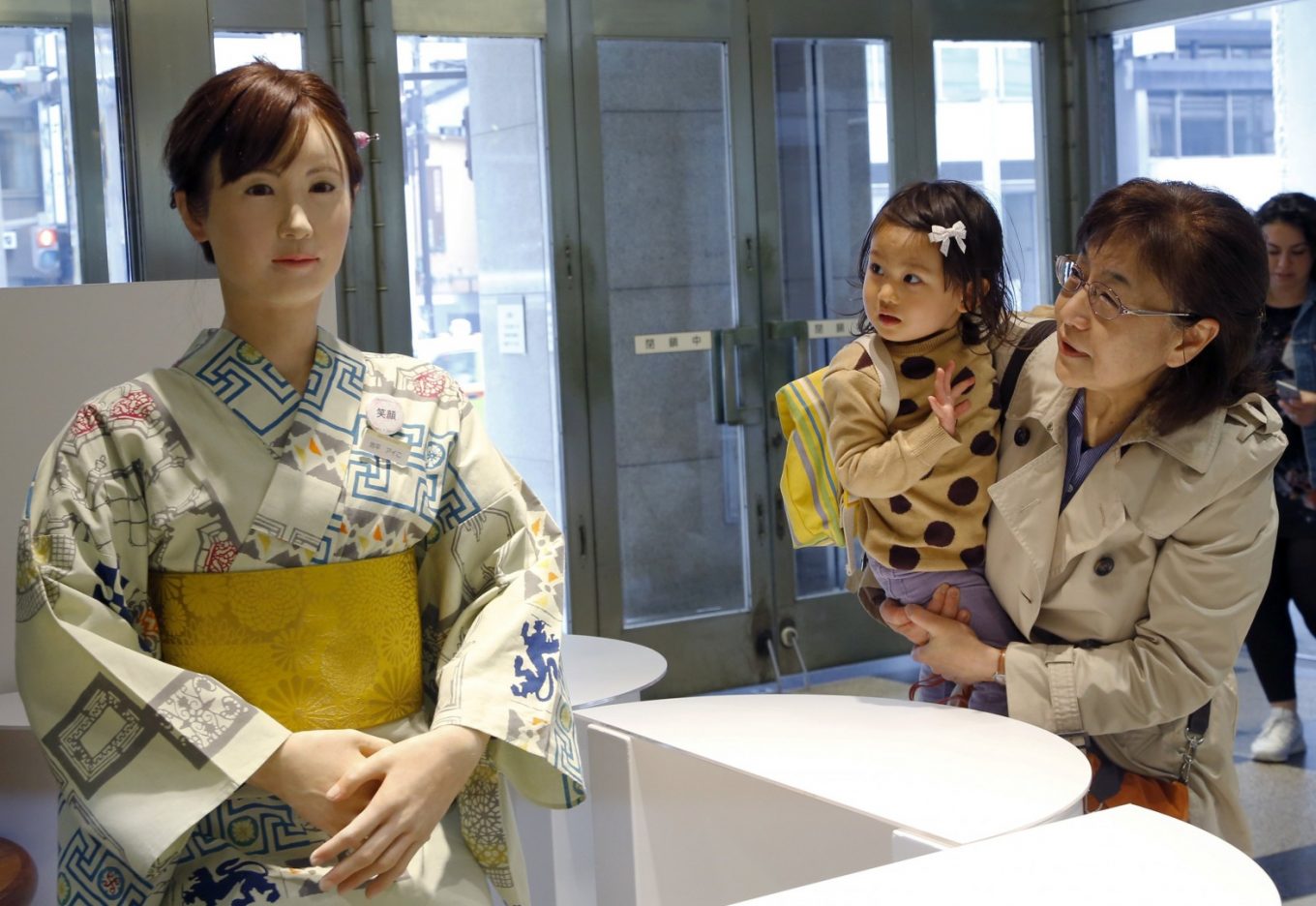
If there is a country where the rush to promote and apply new technological improvements has become a sort of national matter is, without any doubt, that one that someone called the Land of the Rising Sun. Indeed, not only in Japan rises the Sun every single day, but it’s also the country where the 4th Industrial Revolution is starting to take shape.
And it is so as Japan faces many different issues that might compromise their long-term competitiveness in the ever-growing aggressive global economy. Those issues range from an ageing population, a labour force that is highly skilled and keen to learn new technology but less inclined to go physical, to soaring health problems related to high death rate from cancer and diabetes. In the country with the highest life expectancy among all others, these illnesses are almost seen as a national plague, a risk to a spotless social security system.
These concerns might become even bigger when by 2025 all the baby boomers would have reached 75 years old and thus will become retired or disabled to perform in the labour market. And then, the great doubt: When the skilled professionals get overwhelmed by the circumstances and the lack of workforce shows up across all economic sectors, who’s going to take up in their role?
Primer Minister Shinzo Abe has the answer for such crucial turning point: robots and all technologies attached to the 4th Industrial Revolution are the ones who will feed and nourish the economic system.
As he recently claimed: “We want to make robots a major pillar of our economic growth strategy,” said the Japanese prime minister according to the Jiji Press agency and picked by the Independent in a recent article. “We would like to set up a council on making a robotic revolution a reality in order to aid Japan’s growth.”
Japan’s government is putting into practice these words. Abe is willing to boost the robotic industry in the country and plans to develop a a special task force to treble the size of the industry to 2.4 trillion yen (£13.8 billion), hiked only by robot applications. This measure comes to address the vital lack of workforce that is set to hit the Japanese labour market in just seven years from now.
But in the dawn of a new industrial revolution, based on an all-out digital conception, no technology can’t be understood -even less applied- on its own, if it isn’t aided by other emerging breakthroughs, like Artificial Intelligence, Big-Data< Blockchain or Internet of Things, among others.
That is precisely where Japan is becoming a role-model for other countries to follow. Japan is not only investing huge quantities of money in developing quicker and stronger robots but also financing a whole new smart-environment with it where all these technologies can be implemented safely and positively by their fellow citizens.

Building the Definitive Smart-Environment
In creating this new environment, the Internet of Things is a key technology. In fact, today’s Japanese investment in IoT is one of the biggest of the world and they have got good reason to do it. As the World Economic Forum pointed out in a recent post, “by leveraging real-time data and automation, IoT brings new efficiencies and cost savings which are central to the country’s strong global position in manufacturing industries such as electronics and the automotive sector.” With such ageing problems, millions of devices connected and sending data in real-time, can definitely keep up with their current standard production and even rise them up.
IoT also allows to leverage the Smart city technology concept. In a extremely urbanized country where more than 90 per cent of the citizens live in cities, IoT can be “critical to the continued advancement of these cities, helping optimize the use of space, energy and other limited resources. IoT is also transforming the way elderly people are cared for, by enabling remote health and early medical diagnoses,” the WEF added.
The Medicine of the Future
With investment and development in technologies related to the 4th Industrial Revolution, Shinzo Abe also sought to address the other great issue in the country: diseases linked to the ageing population.
Cancer, accounting for the 28.5 per cent of all deaths among with diabetes, dementia or heart-related issues are becoming an increasingly concern for the authorities in the country. To mitigate it, Japan has started a plan where, again, robots with high developed AI are at the centre of it.
The program, which has been called “Precision Medicine”, aims “to understand and develop treatments for rare diseases, cancer, infectious diseases, and dementia among others. Precision medicine is a more tailored and precise way of diagnosing and treating diseases like cancer, based on a deeper understanding of a person’s biological makeup – including the information in their DNA – and how they live their lives,” Knowing each person’s DNA information along with real-time data sent from any patient, doctors can proceed to build a safe and personalized treatment for every case.
Japan has stepped up in the race to overcome the emerging technologies that are re-shaping the world we know now. With an impressive technology sector and the right investment, Japan is actually being seen as a sort of a pilot country for the rest of the world.
What is clear, though, is that these technologies don’t wait up for others to catch up, those countries, citizens and companies which don’t bet on them might be lefted out. Japan has decided to embrace these novel technological evolutions, and the question here lies on how long will the rest of the world wait to follow them.

Hernaldo Turrillo is a writer and author specialised in innovation, AI, DLT, SMEs, trading, investing and new trends in technology and business. He has been working for ztudium group since 2017. He is the editor of openbusinesscouncil.org, tradersdna.com, hedgethink.com, and writes regularly for intelligenthq.com, socialmediacouncil.eu. Hernaldo was born in Spain and finally settled in London, United Kingdom, after a few years of personal growth. Hernaldo finished his Journalism bachelor degree in the University of Seville, Spain, and began working as reporter in the newspaper, Europa Sur, writing about Politics and Society. He also worked as community manager and marketing advisor in Los Barrios, Spain. Innovation, technology, politics and economy are his main interests, with special focus on new trends and ethical projects. He enjoys finding himself getting lost in words, explaining what he understands from the world and helping others. Besides a journalist, he is also a thinker and proactive in digital transformation strategies. Knowledge and ideas have no limits.










